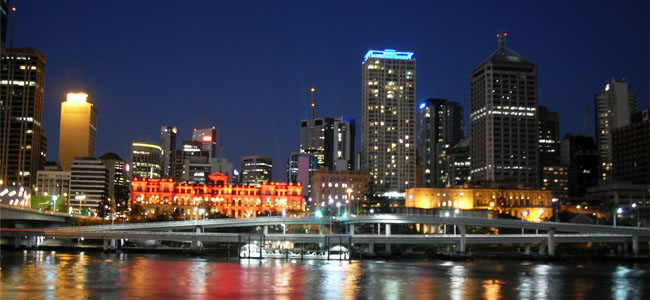The issue of alcohol-related violence has been a persistent political issue around Australia, and of course, live music venues have been wrapped up in the problem of late-night security and safety simply by association.
It’s an issue that’s turned Sydney’s CBD into a real fire-bed since the death of 18-year-old Thomas Kelly in a senseless attack in Kings Cross kick-started a political and social firestorm that was the catalyst for the state of cultural flux that the city and its music scene are currently experiencing.
Following on from yesterday’s report of the South Australian Government introducing the first draft of a new Late Night Trading Code of Practice, looking to introduce tough new regulations like a 3am lockout, mandatory metal detectors and ‘drinks marshal’s to late-night venue operators – pokie-lined pub halls and live music venues alike; Brisbane’s popular entertainment district is about to undergo some similarly hardline changes.
As The Courier Mail reports, the ‘Drink Safe Precinct’ (DSP) program is drawing to a close in February and Police are concerned that the end of the funding to curb alcohol-related violence is about to erupt into an explosion of criminal activity.
An initiative of the State Government, the $8.5 million trial were introduced to increase security and safety in late night trading of licensed venues in local areas. A range of measures were introduced, including increased and high visibility police presence during peak hours, newly-introduced ‘safe zones’ with non-government support services, improved transport information, and increased co-ordination betwween community groups, security, police, and venue operators.
The DSPs have since been deemed a success after reports demonstrate a reduction in alcohol-related violence in the areas of Surfers Paradise, Townsville, and most pointedly for lovers of live music, Fortitude Valley, which contains the lion’s share of music venues in the CBD, despite the ongoing closure and sale of music-hosting sites in the area.
An Operational Performance Review shows that most crimes in the Fortitude Valley DSP have experienced a reduction since it began nearly two years ago, and the latest figures show that drug and alcohol-related assaults in particular have dropped 6% compared to the previous year with the supply of extra police patrols, transport, and rehabilitation services all rolled out as part of the DSP.“If DSP funding ceases in February… there are real concerns amongst police that the nightclub districts in these areas will degenerate into the drug and alcohol-fuelled violence that we used to see”
With those strong results behind them, Police are concerned that the trial’s end could coincide with a return to the dark ages.
“If DSP funding ceases in February as the Government has planned, and nothing is done, such as reducing licensed premises’ trading hours, there are real concerns amongst police that the nightclub districts in these areas will degenerate into the drug and alcohol-fuelled violence that we used to see,” stressed Queensland Police Union president Ian Leavers.
“Although we as police will not stand idly by and let this happen,” added Leavers, “we need the support of government to prevent this happening.”
Deputy Commissioner Ross Barnett added that the DSPs increased the safety for both the general public and the police force.
“Obviously a strong police presence in these precincts is a strong deterrent to anti-social behaviour,” said Barnett. “”For officer safety and the general safety for people in this district it’s always good to have plenty of suits of blue.”
Speaking of the strain on police resources due to the late-night lifestyle of popular areas like Fortitude Valley and its host of live music venues, the Deputy Commissioner commented about the trading hours of venues: “Obviously opening and closing hours have an impact on police operations and rostering and things like that.”
But the current model of policing and patrolling is “only sustainable with continued funding,” according to police reports. “Without current overtime, staffing numbers would not provide enough officers to police the DSP,” state the papers.
Police are also recommending additions and improvements in DSPS, echoing Sydney and Adelaide with the introduction of compulsory ID scanners for all late night traders, and the prohibition of certain liquor after midnight.
The concerns over the DSP trial also coincides with the multi-million dollar investment in public areas and infrastructure by the Brisbane City Council’s Urban Renewal Taskforce, which has taken place over the last few years, which in combination has improved the value of properties in the area, driving up interest from buyers in local businesses – which, as a side effect – has led to the sale of live music venues, such as The Met and The Step Inn last month.

































